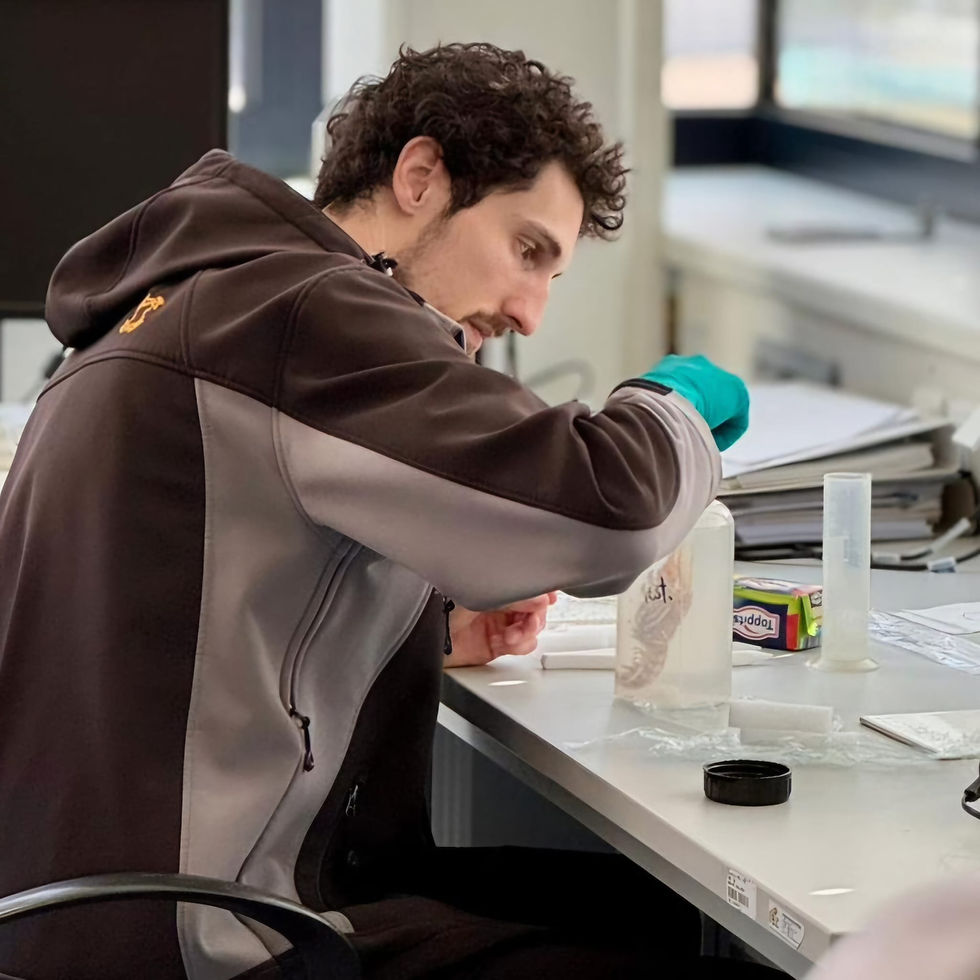Curatorial
Transparency
Format & Focus
kT 2025 is shorter and smaller.
The final moments will showcase 6 weeks of intense working between art an science and will be shown in events, performances and screenings,
Artistic Approach
This year focuses on performance, film and process-based work - with artists rooted in embodied and time-based practices.
No Open Call
Due to pending funding decisions and lack of resources. Like many peers, we're working unpaid and had to skip the open call.
Selection Process
Three curators each selected an artist. We paired established artistic practices with scientists, allowing shared themes and working methods to shape the process.




Science Partners 2025




Bernd Bock
Bernd Bock has been working as a taxidermist at the Phyletic Museum of the University of Jena since 2019. In addition to preparing the exhibits, he and his colleague Matthias Krüger are also responsible for their care and maintenance and for designing new exhibitions. He is also primarily responsible for further developing the collection. His current focus is on revising the museum's important type collection.
Bastienne Karg
Bastienne Karg has been a doctoral candidate at the Ernst Haeckel House since 2022. Her current research project deals with the history of the Ernst Haeckel House and the reception history of Ernst Haeckel during National Socialism. As part of her doctoral project, she is involved in the conception of a new exhibition.
Phyletic Museum with Matthias Krüger and Bernd Bock, and the Ernst Haeckel House with Bastienne Karg
Matthias Krüger
Matthias Krüger has been a taxidermist at the Phyletic Museum of the University of Jena since 1982. Together with his colleague Bernd Bock, he is responsible for preparing the exhibits at the museum, looking after and maintaining numerous items in the extensive collection, and designing and implementing new exhibitions.
Matthias Krüger monitors dead finds of the European wildcat (Felis silvestris) and documents predator-prey relationships of native owls, birds of prey, and falcons.



Mapping Evidence to Theory in Ecology, with Prof. Birgitta König-Ries and Prof. Tina Heger
Birgitta König-Ries
Birgitta König-Ries is a computer scientist and has held the Chair of Distributed Information Systems at Friedrich Schiller University in Jena since 2004. Her research focuses, among other things, on how semantic web and AI methods can be used and further developed to make research results and research data more accessible and permanently available. She often works in interdisciplinary contexts. It was from such a context, the EcoWeaver project, an initiative combining ecology, philosophy, and computer science, that the impetus to participate in kT 2025 arose.
Prof. Dr. Tina Heger
Tina Heger is an ecologist by training, with a focus on knowledge synthesis, ecological effects of global change and future approaches to nature conservation. She is engaged in cross-disciplinary research including computer scientists, philosophers and artists. In several projects at the Leibniz Institute of Freshwater Ecology and Inland Fisheries (IGB) in Berlin, Germany and at the Center for Interdisciplinary Research (ZIF) in Bielefeld, she pursues the vision to develop a digital "atlas of knowledge" in which scientific knowledge would be accessible in an actionable form at no cost. Tina Heger is co-founder of Symbio(s)cene e.V., an NGO that aims to develop positive visions for a livable future beyond the Anthropocene by bringing together science and arts (symbioscene.com). She was recently awarded an honorary professorship at Leuphana University Lüneburg, and an adjunct professorship at Technical University of Munich.

Cluster of Excellence Balance of the Microverse with Dr. Andreas Ulmer
Andreas Ulmer
Andreas Ulmer is both a biologist and a musician. His scientific research focuses on how microbial ecosystems respond to stress. He wonders how microbes survive, interact, and adapt to the environment. His academic path has taken him from Stuttgart to Cardiff and Harvard. During his PhD, he studied how microbes interact in yoghurt. Since 2024, Andreas has been a researcher at the Cluster of Excellence Balance of the Microverse at Friedrich Schiller University Jena. There, he explores soil microbes, and more specifically, dormant microbes. They contribute to the resilience of the soil microbiomeâthough their exact roles remain a mystery.
Beyond the lab, Andreas is deeply passionate about music spanning the past 500 years, with a particular love for the organ. He admires the instrument for its orchestral richness and flamboyant sonic effects. To him, the organ is like a laboratory of sounds as complex and full of surprises as the microbial world he explores.
Förderer 2025







